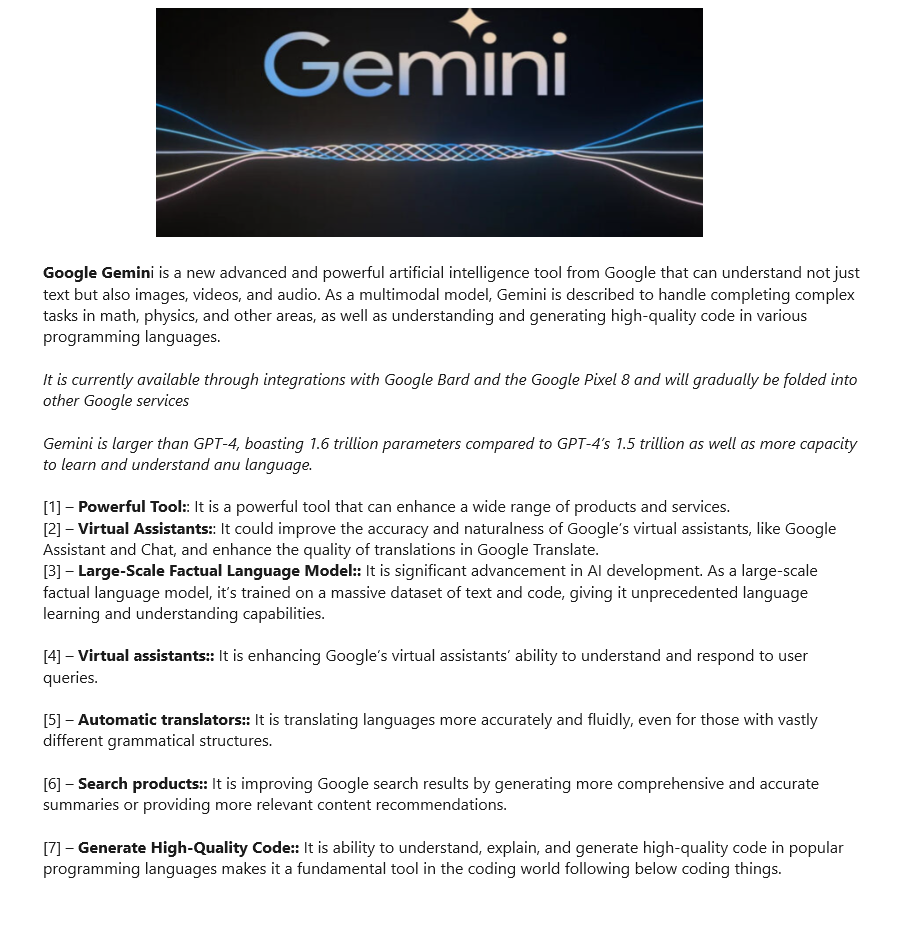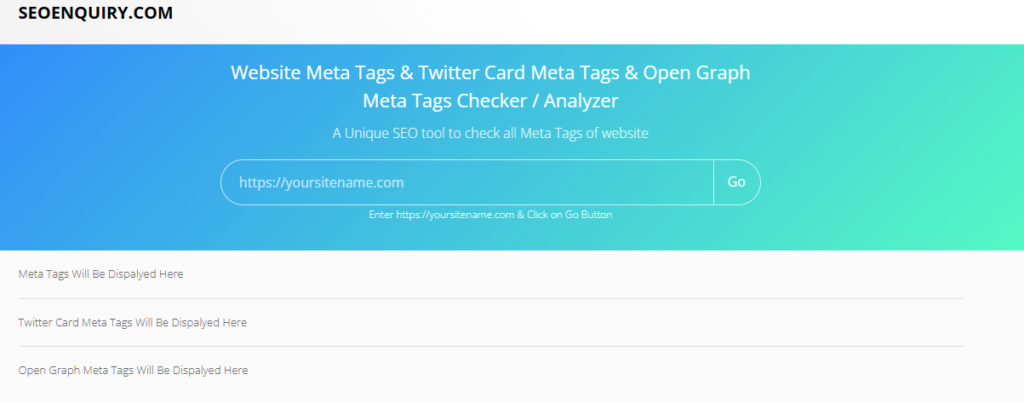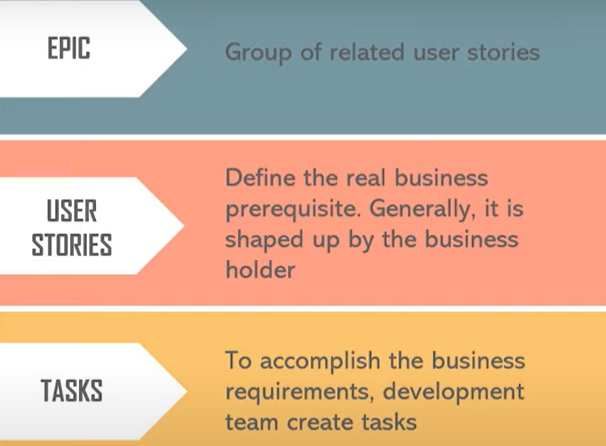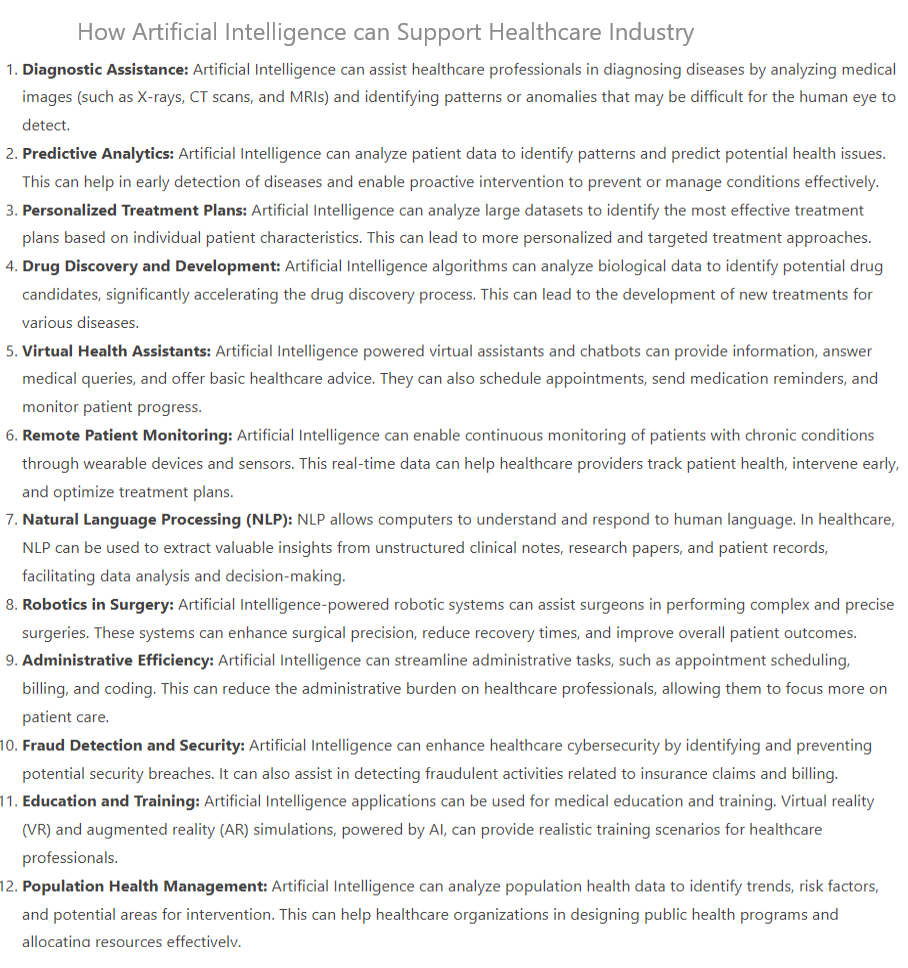
Google’s Gemini is a large-level factual language model trained on a massive dataset of text and code. it has been developed by Google DeepMind, it represents a multimodal and flexible approach designed to enhance the integration of technology into everyday life and business development. Gemini can manage and analyze information efficiently across multiple formats, including text, code, audio, image, and video. It is already considered a rival to OpenAI GPT-4 language model.
Gemini, Google’s new Artificial Intelligence launched on December 6, 2023
Gemini is larger than GPT-4, boasting 1.6 trillion parameters compared to GPT-4’s 1.5 trillion as well as more capacity to learn and understand anu language.
[1] – Powerful Tool:: It is a powerful tool that can enhance a wide range of products and services.
[2] – Virtual Assistants:: It could improve the accuracy and naturalness of Google’s virtual assistants, like Google Assistant and Chat, and enhance the quality of translations in Google Translate.
[3] – Large-Scale Factual Language Model:: It is significant advancement in AI development. As a large-scale factual language model, it’s trained on a massive dataset of text and code, giving it unprecedented language learning and understanding capabilities.
[4] – Virtual assistants:: It is enhancing Google’s virtual assistants’ ability to understand and respond to user queries.
[5] – Automatic translators:: It is translating languages more accurately and fluidly, even for those with vastly different grammatical structures.
[6] – Search products:: It is improving Google search results by generating more comprehensive and accurate summaries or providing more relevant content recommendations.
[7] – Generate High-Quality Code:: It is ability to understand, explain, and generate high-quality code in popular programming languages makes it a fundamental tool in the coding world following below coding things.
[a] – Text generation
[b] – Language translation
[c] – Creative content writing
[d] – Informative question answering
[e] – Creating more natural chatbots
[f] – Generating original creative content
[g] – Efficient code writing
[h] – Improving search results
[i] – Developing new products and service






